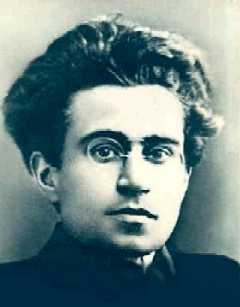College Professors Want to Steal Your Child’s Mind
It’s back to college time. Millions of young people will be going off to retraining camps to get their minds right. What will they encounter? Is there an agenda?
Not every professor is trying to steal your child’s mind, but there are enough of them out there that tens of thousands of young people are seduced by purposeful transforming worldviews. It’s been going on for a long time. These radicalized graduates make their way through academia training future generations, politicians, economists, journalists, and judges.
We hear a lot about Saul Alinsky’s Rules for Radicals and how people like Hillary Clinton and Barack Obama have been influenced by his strategies.
Alinsky never would have approved of taking it to the streets like we’re seeing in Ferguson, Missouri. His tactics were much more subtle and insidious. He’s not the only one.
The radicals knew it would be necessary to capture the institutions without ever firing a shot or blowing up a building. Roger Kimball captures the tactic well in his book The Long March: How the Cultural Revolution of the 1960s Changed America: “The long march through the institutions signified in the words of [Herbert] Marcuse, ‘working against the established institutions while working in them’. By this means—by insinuation and infiltration rather than by confrontation—the counter-cultural dreams of radicals like Marcuse have triumphed.” ((Roger Kimball, The Long March: How the Cultural Revolution of the 1960s Changed America (San Franciso: Encounter Books, 2000), 15.))
Before Alinsky and Marcuse there was Antonio Gramsci (1891–1937).

Antonio Gramsci
Gramsci broke with Marx and Lenin’s belief that the masses would rise up and overthrow the ruling “superstructure.” No matter how oppressed the working classes might be, their Christian faith would not allow such an overthrow, Gramsci theorized. Marxists taught “that everything valuable in life was within mankind.” ((Malachi Martin, The Keys of This Blood: The Struggle for World Dominion Between Pope John II, Mikhail Gorbachev and the Capitalist West (New York: Simon and Schuster, 1990), 245.))
Gramsci began his re-imaging of Marxism by dropping the harsh slogans. “It wouldn’t do to rant about ‘revolution’ and ‘dictatorship of the proletariat’ and the ‘Workers’ Paradise.’” ((Martin, The Keys of This Blood, 249.)) Instead, Marxism would have to put on a new face and talk about “national consensus,” “national unity,” and “national pacification.” Sound familiar?
The democratic process rather than revolution would be used to bring about the necessary changes. At first, pluralism would be promoted and defended. Further, Marxists would join with other oppressed groups—even if they did not share Marxist ideals—to create a unified coalition of voting power. After building their coalition “they must enter into every civil, cultural and political activity in every nation, patiently leavening them all as thoroughly as yeast leavens bread.” ((Martin, The Keys of This Blood, 250.))
After building their coalition “they must enter into every civil, cultural and political activity in every nation, patiently leavening them all as thoroughly as yeast leavens bread.” ((Martin, The Keys of This Blood, 250.)) To change the culture, Gramsci argued, “would require a ‘long march through the institutions’—the arts, cinema, theater, schools, colleges, seminaries, newspapers, magazines, and the new electronic medium [of the time], radio.” ((Patrick J. Buchanan, Death of the West: How Dying Populations and Immigrant Invasions Imperil Our Country and Civilization(New York: St. Martin’s Press/Thomas Dunne Books, 2001), 77.))
The following is from “Richard Rorty, an influential academic figure in the late 20th century. He speaks for liberal arts professors everywhere. His life’s goal was to steal our children, and charge parents $240,000 for the privilege:
“It seems to me that the regulative idea that we heirs of the Enlightenment, we Socratists, most frequently use to criticize the conduct of various conversational partners is that of ‘needing education in order to outgrow their primitive fear, hatreds, and superstitions’ … It is a concept which I, like most Americans who teach humanities or social science in colleges and universities, invoke when we try to arrange things so that students who enter as bigoted, homophobic, religious fundamentalists will leave college with views more like our own …
“The fundamentalist parents of our fundamentalist students think that the entire ‘American liberal establishment’ is engaged in a conspiracy. The parents have a point. Their point is that we liberal teachers no more feel in a symmetrical communication situation when we talk with bigots than do kindergarten teachers talking with their students …
“When we American college teachers encounter religious fundamentalists, we do not consider the possibility of reformulating our own practices of justification so as to give more weight to the authority of the Christian scriptures. Instead, we do our best to convince these students of the benefits of secularization.
“We assign first-person accounts of growing up homosexual to our homophobic students for the same reasons that German schoolteachers in the postwar period assigned The Diary of Anne Frank… You have to be educated in order to be … a participant in our conversation … So we are going to go right on trying to discredit you in the eyes of your children, trying to strip your fundamentalist religious community of dignity, trying to make your views seem silly rather than discussable.
“We are not so inclusivist as to tolerate intolerance such as yours … I don’t see anything herrschaftsfrei [domination free] about my handling of my fundamentalist students. Rather, I think those students are lucky to find themselves under the benevolent Herrschaft [domination] of people like me, and to have escaped the grip of their frightening, vicious, dangerous parents … I am just as provincial and contextualist as the Nazi teachers who made their students read Der Stürmer; the only difference is that I serve a better cause.” ((‘Universality and Truth,’ in Robert B. Brandom (ed.), Rorty and his Critics (Oxford: Blackwell, 2000), 21-22.))
If you wonder why America is like it is, you only have to ask a college professor.



